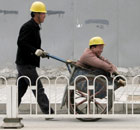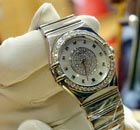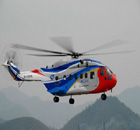Asia-Pacific
Thai activists reject peace talks offer
(Agencies)
Updated: 2010-03-21 21:16
 |
Large Medium Small |
Govt seen unlikely to Fall
Investors and most analysts believe Abhisit's government is unlikely to fall as it has the backing of the military and wealthy establishment elites, accused by the "red shirts" of meddling in politics and undermining democracy.
Somjai said the premier's likely tactic was to wait for the protesters, many of whom are from rural areas, to become tired, frustrated and disheartened, and run out of steam.
"Abhisit is holding all the cards," he added. "He knows this can't go on for months."
The lack of violence and stability of a government that has put Southeast Asia's second largest economy on course for recovery has reduced short-term risk concerns. But investors remain hesitant about long-term expansion in a country beset by deep social rifts.
Much of the divisiveness centers on Thaksin, the assumed leader and financier of the movement, who is loved by Thais as much as he is loathed.
Overthrown in a 2006 coup and sentenced in absentia to two years in prison for graft, the twice-elected Thaksin is fighting to return from self-imposed exile and wrestle back de facto political power through his allies in the opposition party.
Security was stepped up late on Saturday after two attacks on what the authorities said were symbolic targets. It was not known who was behind the attacks and protesters denied responsibility.
A grenade exploded in the compound of the Defense Ministry, close to the protest site, slightly wounding two people, while an explosive device was hurled at the headquarters of the National Anti-Corruption Commission in Nonthaburi, near Bangkok.
Protest leaders were planning to raise the intensity of their rally on Monday and Tuesday. They might seek to make Abhisit's job impossible by following him and blocking his every move.
The premier is avoiding his office, parliament and his home for security reasons and has based himself at a heavily fortified military compound, traveling around the city by helicopter.






